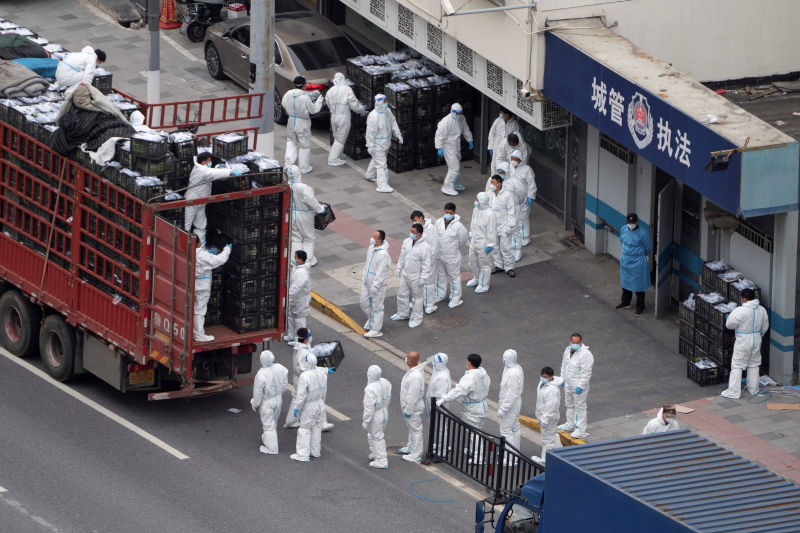Shanghai’s vice-mayor admitted to shortcomings in the city’s handling of its Covid-19 outbreak as a record 23,600 new cases were reported on Saturday.
Zong Ming praised the support from the people and the work of frontline workers despite public criticism of strict curbs, but said the handling of the virus needed to improve.
“We feel the same way about the problems everyone has raised and voiced,” Zong told a daily briefing. “A lot of our work has not been enough, and there’s still a big gap from everyone’s expectations. We will do our best to improve.”
Beijing intervened after the failure of Shanghai’s initial effort to isolate the virus by locking down in stages, insisting that the country stick to its zero-tolerance policy to prevent its medical system from being overwhelmed.
Elsewhere on Saturday, the southern megacity of Guangzhou – home to over 18 million people – said it would begin testing in all 11 of its districts, after cases were reported there on Friday.
In Shanghai, where 26 million people are in lockdown, residents have continued to complain about food shortages due to a lack of couriers and uncertainty about when lockdown curbs may end.
The government said it would conduct more testing on Saturday and would ease some movement curbs.
Some residents of housing compounds with no recent cases said they had been notified by their neighbourhood committees that they could leave their homes to stroll within their compounds.
It did not signal a change of approach, however. “The epidemic prevention and control is now at the most critical moment, and we cannot tolerate the slightest slack,” Zong said.
Gu Jun, director of the city’s commerce commission, acknowledged problems in distributing food supplies and said distribution centres, supermarkets, and pharmacies should continue operating online as much as possible.
E-commerce company JD.com said on Saturday it had obtained a licence to deliver goods into Shanghai and hosted a livestreaming sales session joined by more than 3.5 million people.
Offered products were sold out within seconds and the hosts repeatedly pleaded for patience in response to commentators who complained that they were unable to purchase.
Shanghai’s unusually high proportion of asymptomatic cases among its reported COVID-19 infections could be partly explained by blurred lines between “mildly symptomatic” and asymptomatic cases.
The asymptomatic rate has stood at about 97%, far higher than anywhere else in the world, where it has been closer to 50%.
Fu Chen, head of the municipal Centre for Disease Control and Prevention, said Shanghai’s rapid surveillance testing was contributing to the big asymptomatic numbers by catching infections earlier.
He also said high vaccination rates were also having an impact, as vaccinated people are less likely to show symptoms.
Fu did not say directly that Shanghai was using less strict diagnostic criteria, but he did suggest the numbers in the rest of China would be comparable if “mildly symptomatic” cases were included in the asymptomatic tally.
“Recently, a press conference of the State Council’s joint prevention and control mechanism also said that the proportion of mildly symptomatic and asymptomatic infections in hospitals across the country exceeds 95%,” Fu noted.
- Reuters, with additional editing by George Russell
























